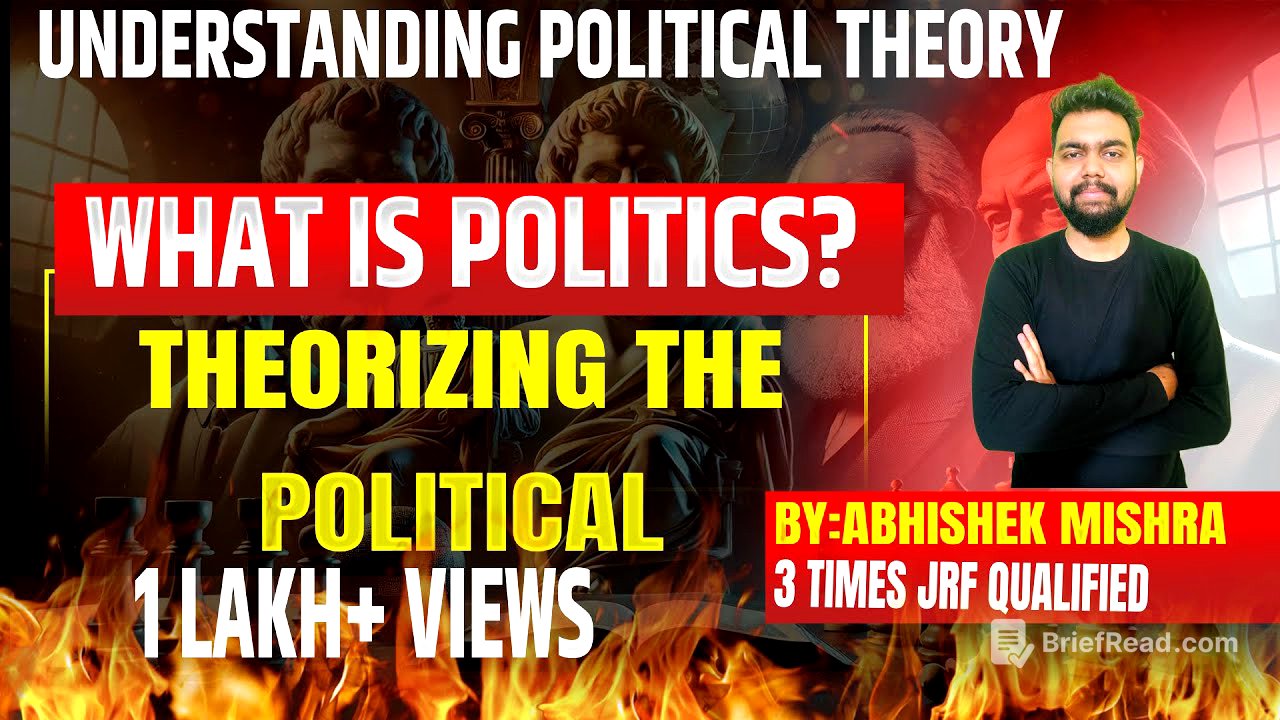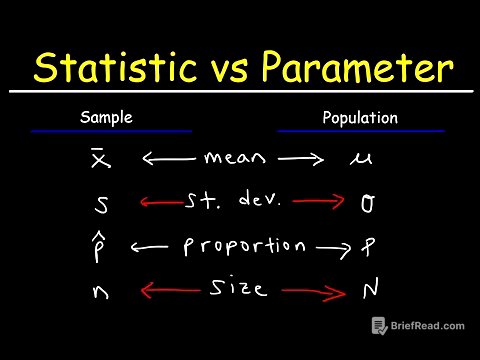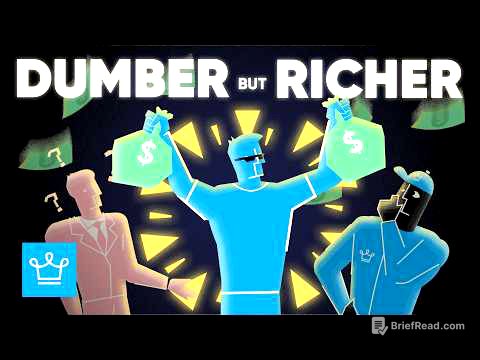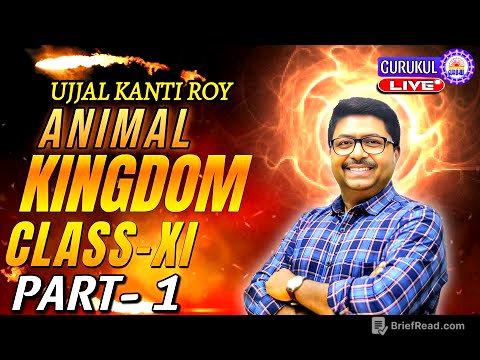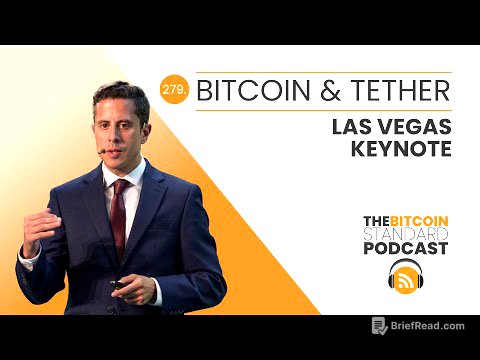TLDR;
This video introduces the fundamental concepts of politics, political science, political theory, political thought, and political ideology. It explains politics as a conflict resolution activity essential for society, distinguishing between power and authority. The lecture further explores the nature of political theory, its components, and its relationship with political science and philosophy, emphasizing the importance of understanding these concepts for a comprehensive grasp of political phenomena.
- Politics is essential for conflict resolution in society.
- Authority is legitimate power, crucial for resource distribution.
- Political theory combines empirical observations with normative values.
- Political thought reflects the collective thinking of a community.
- Political ideology is a belief system used to justify political actions.
Introduction to Political Science [0:00]
The lecture begins by emphasizing the importance of understanding political science for students, highlighting that politics is an inevitable and crucial aspect of society. It stresses that politics is as old as society itself and serves as a conflict resolution activity, aiming to reduce or eliminate conflicts arising from limited resources. David Easton's definition of politics as the authoritative allocation of values is mentioned, underscoring its role in distributing resources and resolving societal conflicts.
Power vs Authority [3:08]
The discussion moves to the concepts of power and authority, differentiating power as the ability to influence behavior and authority as legitimate power with consent from the governed. The government's authority, derived from the consent of the people, enables it to resolve conflicts and distribute resources effectively. The struggle for power in politics is inevitable because power is necessary for authority, which in turn is essential for resource distribution and conflict resolution.
Politics and Decision Making [8:09]
Politics is described as an institution that makes rules and regulations for the community, guiding its members and taking decisions on their behalf. It involves power relationships and decision-making processes aimed at regulating the community. The lecture identifies key components of politics, including the state, government, leaders, political parties, police, and administration, all working together to make decisions and enforce rules for the community's proper functioning.
Politics, Political and Political Activity [13:58]
The lecture defines "political" as anything related to politics, the state, or the government, emphasizing that politics is an activity aimed at resolving disputes and conflicts. It explains that the terms "politics," "political," and "political activity" are derived from the Greek word "polis," referring to ancient city-states. These city-states aimed to provide a good life for their communities, with no distinction between private and public spheres, unlike modern states.
Political Activity and Political Process [19:08]
Politics is discussed in terms of political activity, which includes resolving conflicts and sometimes creating them to maintain power. The political process involves the creation and implementation of public policies through interaction between social groups, political institutions, political leaders, and public opinion. Public policies are formulated based on input from social groups and public opinion, highlighting the dynamic relationship between society and the government.
Political Power and Political Theory [24:36]
Political power is defined as the capacity to influence behavior, underscoring the inherent struggle for power in politics. Political theory is introduced as systematic knowledge that explains the causes and consequences of political events, helping to understand society better. The lecture uses the example of gravity to illustrate how theory explains relationships between actions and their effects.
Nature of Political Theory [29:35]
The nature of political theory is explored through three types of statements: empirical (what is), normative (what should be), and logical (reasoning-based). Empirical and logical statements are scientific and verifiable, while evaluative statements are based on values and prescriptions. Political theory combines political science (empirical and logical aspects) and political philosophy (normative aspects) to provide a comprehensive understanding of political phenomena.
Political Thought and Political Ideology [39:48]
Political thought is defined as the collective thinking of a community at a particular time, distinct from individual political philosophy or theory. Political ideology, characterized by "isms," is presented as a belief system used to justify political actions, similar to religion. Ideologies provide comprehensive ideas and justifications, but their claims cannot be definitively proven right or wrong, as they are based on belief.
